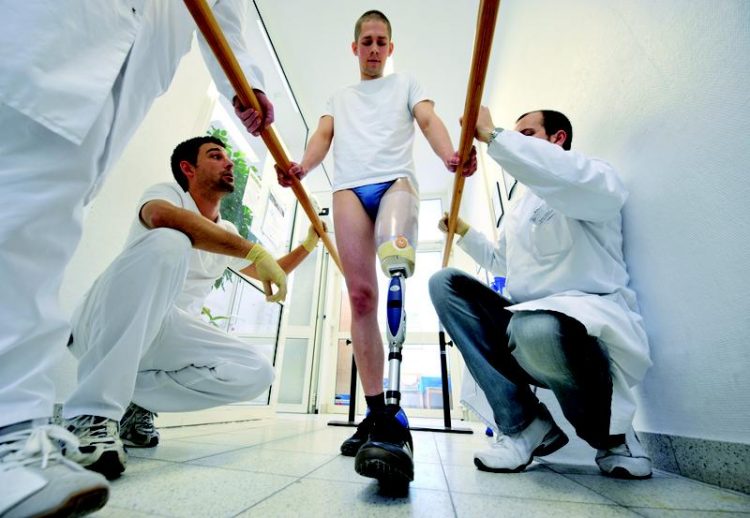Medical-technical competence center for prosthetics and orthotics established

Prosthetic Center at Heidelberg University Hospital Source: Heidelberg University Hospital
A focus of the international expert groups – »Motion Lab« at the University Hospital, led by Dr. Sebastian Wolf, and the Fraunhofer IPA »Biomechatronic Systems« department headed up by Dr. Urs Schneider – was to investigate, develop and medically improve aids such as orthotics and prosthetics as well as other auxiliary systems for people with restricted mobility.
The cooperation covered research, development and testing of orthopaedic aids. The findings are set to be used in clinical patient treatment. A core issue here is methodological research for evidence-based patient treatment.
Dr. Urs Schneider: »The combination of clinical and metrological experiences creates powerful synergies for questions of the future such as MDR-compliant type documentation approval for orthopaedic aids.«
Dr. Sebastian Wolf, who coordinates the competence center together with Urban Daub, Project Leader at Fraunhofer IPA, was delighted: »Patients, medical cost insurers, manufacturers, orthopaedic technology experts, doctors and researchers are all welcome to contribute to the discussion.«
Contact Partners
Urban Daub | Phone +49 711 970-3645 | urban.daub@ipa.fraunhofer.de | Fraunhofer-Institute for Manufacturing Engineering and AutomationIPA
Dr. Sebastian Wolf | Phone +49 6221 56-26724 | sebastian.wolf@med.uni-heidelberg.de | Clinical Center for Orthopaedics and Trauma Surgery | University Hospital Heidelberg
http://www.ipa.fraunhofer.de/en
http://www.klinikum.uni-heidelberg.de
http://www.heidel-motionlab.de
Media Contact
All latest news from the category: Power and Electrical Engineering
This topic covers issues related to energy generation, conversion, transportation and consumption and how the industry is addressing the challenge of energy efficiency in general.
innovations-report provides in-depth and informative reports and articles on subjects ranging from wind energy, fuel cell technology, solar energy, geothermal energy, petroleum, gas, nuclear engineering, alternative energy and energy efficiency to fusion, hydrogen and superconductor technologies.
Newest articles

Sea slugs inspire highly stretchable biomedical sensor
USC Viterbi School of Engineering researcher Hangbo Zhao presents findings on highly stretchable and customizable microneedles for application in fields including neuroscience, tissue engineering, and wearable bioelectronics. The revolution in…

Twisting and binding matter waves with photons in a cavity
Precisely measuring the energy states of individual atoms has been a historical challenge for physicists due to atomic recoil. When an atom interacts with a photon, the atom “recoils” in…

Nanotubes, nanoparticles, and antibodies detect tiny amounts of fentanyl
New sensor is six orders of magnitude more sensitive than the next best thing. A research team at Pitt led by Alexander Star, a chemistry professor in the Kenneth P. Dietrich…





















